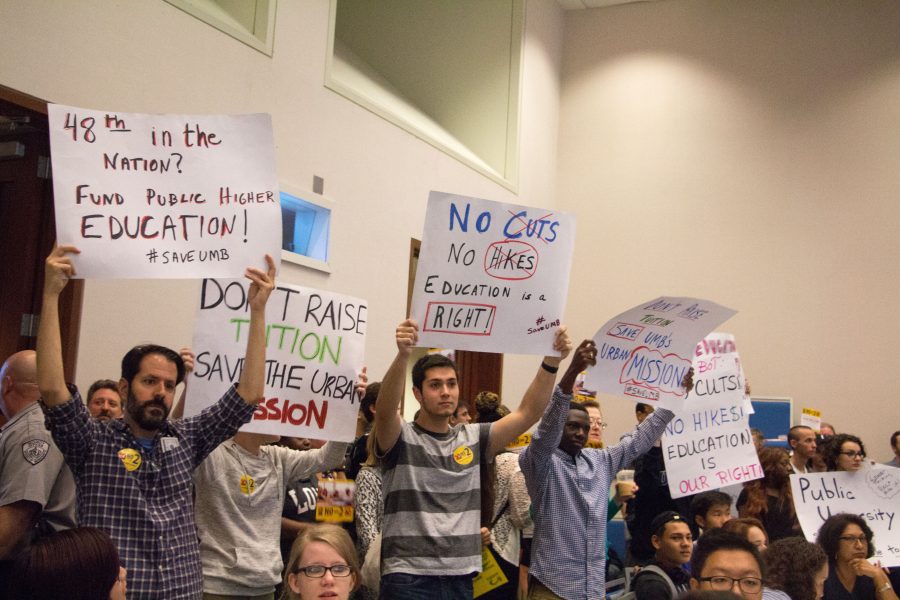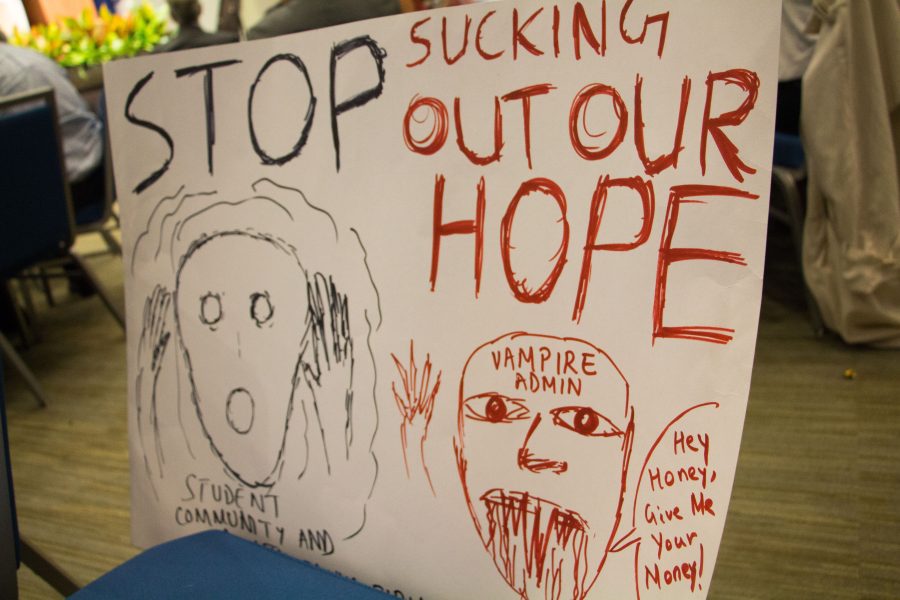At the beginning of this semester, the University of Massachusetts Boston’s staff, faculty, and students have faced a surge in tuition and layoffs cutback from the state, and might be confronted with more budget cutbacks in the future. On Sept. 16, appointed Secretary of Education James A. Peyser, a supporter of academic privatization, was invited to UMass Boston to be the keynote speaker at this year’s convocation. He is also known for being an advocate for charter schools and the reduction of funding to public schools.
At the commission ball meeting, the hall was abuzz with eager voices and hands waiting to address the concerns of the school. Provost Winston Langley introduced Secretary of Education Peyser, which was followed by an orchestra of hissing and booing.
Peyser detailed the projected drawbacks of student debt and the difficulty a public school has to face in this generation to provide the skills necessary for students to enter the workforce. Peyser’s theme of argument for the recent increase in tuition was “Don’t just balance the budget, change the model.” Peyser states that these changes are precursors to a system that will in effect “provide its services in a more sustainable and affordable way for its students and its taxpayers.” However this did not satisfy the crowd and tension in the audience remained high.
Peyser stated that UMass Boston “can’t afford to keep marginal programs on life support in hopes that they’ll eventually get better or bigger.” Encouraging educational leaders to focus on their strengths, Peyser said, “Trying to be all things to all people is a formula for mediocrity.”
To support his perspective, Peyser pointed to a collaboration in downtown Lynn between North Shore Community College and Salem State University. These institutions worked to allow students to attend two years of community college and two years at Salem State.
This restructuring, which was meant to address the issue of affordability, was met with resistance; during the Q&A, faculty advocated for more funding rather than new ways of structuring education.
University Union President and Professor in the English Department John Hess, took the stage to present a petition with 3,000 signatures that ask for “no cuts to the faculty, no rise in tuition, and no rise in student faculty ratio.” The petition’s goal is to protect UMass Boston’s mission of access and affordability for students.
Joe Ramsey, Professor in the Department of American Studies, spoke about how UMass Boston is a leader in higher education, but “ranks in the bottom of public school funding.” He also pointed to the fact that keynote speaker Peyser is a supporter for a 4 percent tax on income over 1 million dollars. Furthermore, Ramsey addressed that Peyser has been known to be outspoken against the Fair Share Amendment.
At one point, the exchange between Peyser and the audience became heated when he tried to answer questions on state education spending beyond UMass Boston. Members of the audience chanted “Answer the question,” and Provost Winston Langley stepped in saying, “He’s still in the process of answering.”
“I’m actually done,” Peyser ended, before taking a different question from Marlene Kim, the Faculty Staff Union president and an Economics Professor who asked what Peyser could do to help and questioned whether “we have to choose between faculty and buildings.”
Throughout, the audience was clapping and cheering, showing their disagreement with the speaker who denied the obvious insufficient funds the state has.
At the end of the convocation, protesters gathered outside the building for a rally to protest the recent budget cuts, layoffs, and tuition hikes.
Fall Convocation Met With Protests
September 18, 2016
Protesters at the Fall 2016 Convocation






















































